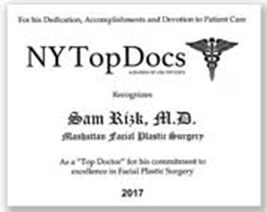What are Nasal Polyps?
Nasal polyps are non-cancerous yellow-brown teardrop-shaped growths that occur in the lining of the nose or sinuses. They can cause difficulty breathing, loss of smell, congestion, and a runny nose. They are usually caused by inflammation due to allergies or chronic sinus infections1. Symptoms can be managed with medications or nasal sprays, but some cases may require surgical removal.
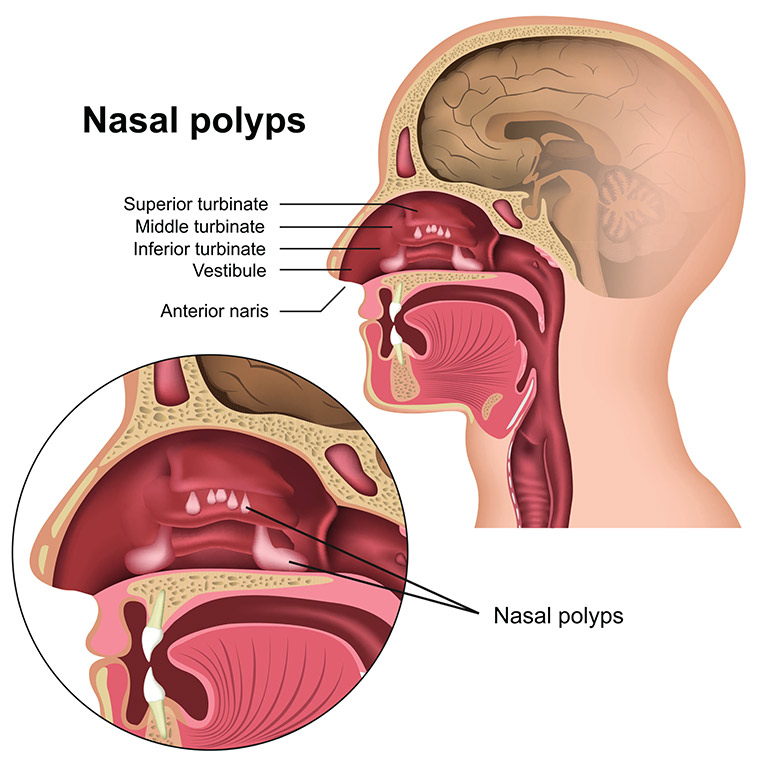
Nasal Polyp Removal Surgery
The nasal polyps removal procedure, performed by Dr. Rizk, begins with the patient being placed under general anesthesia. Once sedated, the polyps are removed using a variety of techniques, including endoscopic instruments, laser treatments, and traditional rhinoplasty surgery. The polyps are removed in various ways, depending on their size and location. After the polyps are removed, the patient is monitored for any possible side effects or complications.
Benefits of the procedure can include improved breathing, reduced snoring, decreased sinus inflammation and headaches, and improved sense of smell. Additionally, patients typically experience quicker recovery times when opting for surgical removal as opposed to other treatment options2 such as medications or natural therapies.
Nasal Polyp Surgery Recovery
The recovery process for nasal polyps is relatively straightforward. Rest and a reduction in physical activity are typically recommended after surgery to help with healing. Depending on the severity of the condition, medication may be prescribed to help with pain and swelling.
After surgery, patients can expect a follow-up visit with their doctor to assess progress. Nasal saline irrigations may also be recommended to flush out any remaining mucus buildup and reduce nasal congestion. Patients should follow guidelines from their healthcare provider such as avoiding heavy lifting, bending over, or blowing their nose until fully healed. Surgery can usually provide long-term relief for those suffering from nasal polyps, but it’s important to keep up with regular checkups to ensure that any new symptoms don’t arise.
Nasal Polyp Surgery Side Effects
Nasal polyp surgery can have side effects, such as temporary swelling, pain, and bleeding. There is also a risk of infection or even damage to the surrounding tissue. In rare cases, there may be an allergic reaction to the anesthesia used during surgery. Overall, the risks associated with nasal polyp surgery are generally low but there are still potential complications that must be taken into account when considering this type of procedure.
Meet Dr. Rizk NYC Nasal Polyps Surgery Specialist
Dr. Rizk is an expert in treating nasal polyps and has the experience to provide the best care available. He will take the time to listen to your concerns and discuss potential treatment options tailored to your needs. With Dr. Rizk, you can rest assured that you receive top-notch care and personalized attention throughout your treatment journey. By consulting with Dr. Rizk, you can take charge of your health and reclaim control of your life by gaining freedom from your nasal polyps. Book an appointment today!
Dr. Rizk in the Media
Frequently Asked Questions
How do you know if you have nasal polyps?
Symptoms of nasal polyps include congestion, runny nose, difficulty breathing through the nose, loss of smell or taste, snoring, and facial pain. Your doctor may also perform a physical examination and use an endoscope to check inside the nose for any signs of polyps.
Do nasal polyps bleed?
Nasal polyps rarely bleed, but it is possible for them to become irritated and cause some light bleeding.
How do nasal polyps form?
Nasal polyps are caused by chronic inflammation usually due to allergies or respiratory infections. Other causes can include asthma, sinus infections, and certain medications.
What happens if nasal polyps go untreated?
If left untreated, nasal polyps can block your airways and cause difficulty breathing. In addition, they can worsen over time, leading to further symptoms such as headaches and facial pain.
How serious is nasal polyps?
Nasal polyps can range in severity from mild to severe depending on the size of the growths and how much they are obstructing your airways. If left untreated for too long, complications such as vision problems or hearing loss can occur due to blocked sinuses.
Can you blow out a nasal polyp?
No, blowing out a nasal polyp with your breath is impossible. The only way to remove a nasal polyp is through surgery or other medical procedures.
Is nasal polyp surgery dangerous?
While most surgeries associated with removing a nasal polyp are generally safe and successful, there are always risks associated with any surgical procedure such as infection or bleeding after the surgery. It’s best to consult with your doctor beforehand so they can assess the risk involved with your particular situation and discuss any necessary precautions that need to be taken before proceeding with treatment.
What’s the difference between nasal polyps surgery and rhinoplasty?
Nasal polyps removal is a surgical procedure to remove benign growths from the lining of the nose and sinuses, while rhinoplasty surgery is a cosmetic or reconstructive procedure to reshape or resize the nose for aesthetic or functional purposes.
Awards & Certifications
References
1American Academy of Allergy, Asthma & Immunology – Nasal Polyps. Available: https://www.aaaai.org/tools-for-the-public/conditions-library/allergies/nasal-polyps.
2All about nasal polyps. Medically reviewed by Deborah Weatherspoon, Ph.D., MSN — By Yvette Brazier. Available: https://www.medicalnewstoday.com/articles/177020.

By Dr. Sam S. Rizk, M.D., FACS.
Dr. Rizk is a double-board-certified facial plastic surgeon who specializes in rhinoplasty surgery and is a recognized expert on the latest advances in facial plastic surgery techniques. He performs a range of facial plastic surgeries at his New York practice.



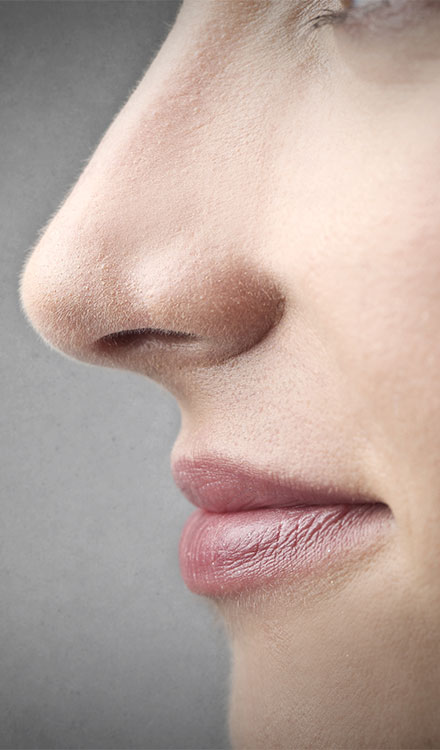


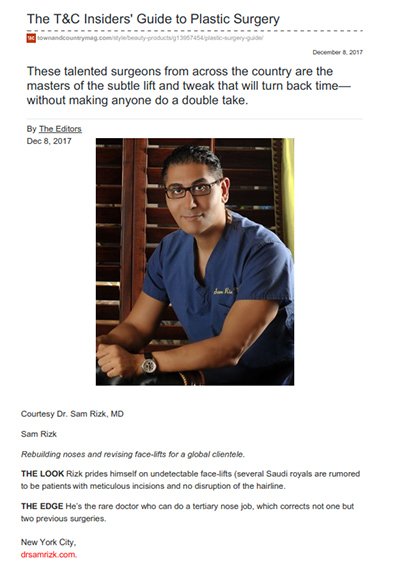

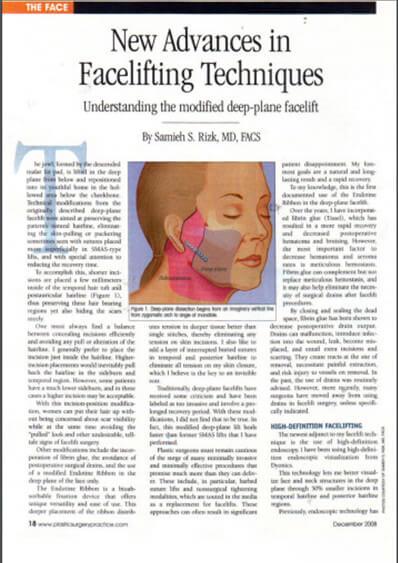



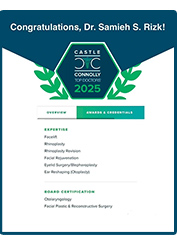


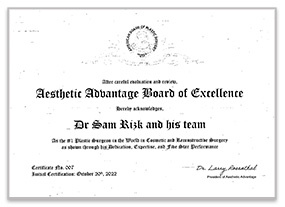



2.jpg)




